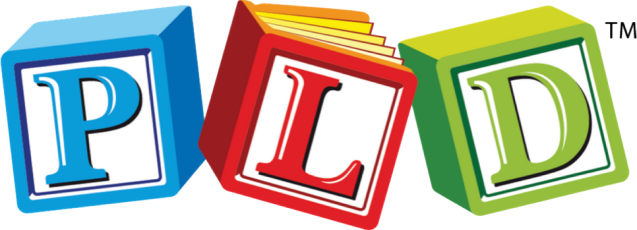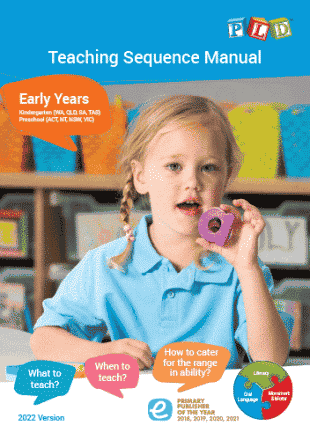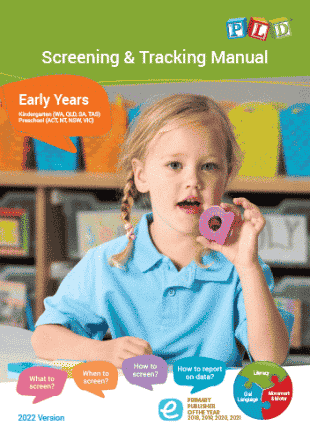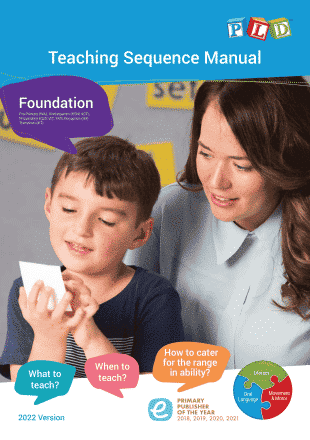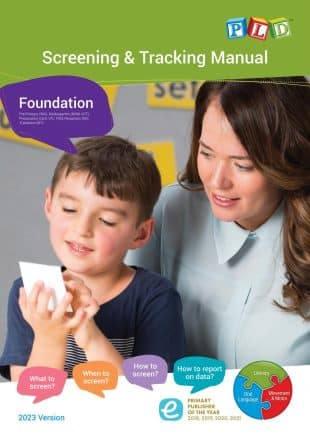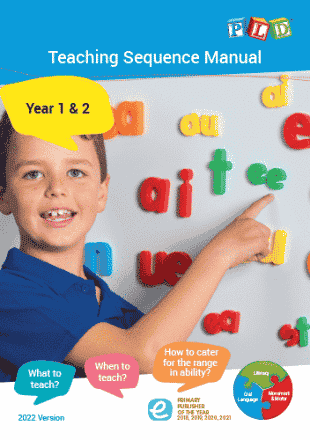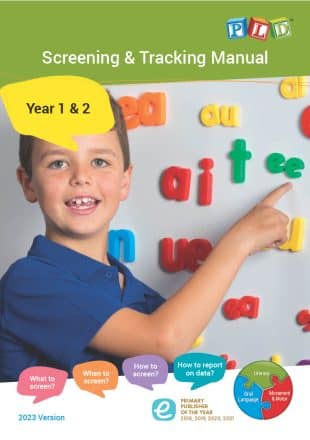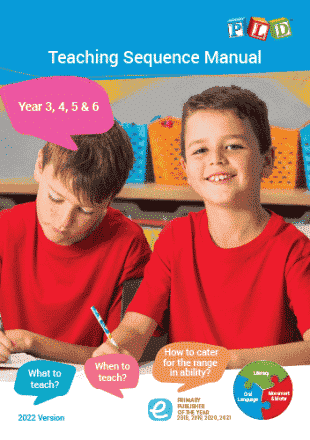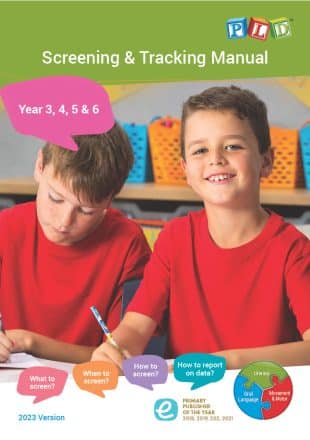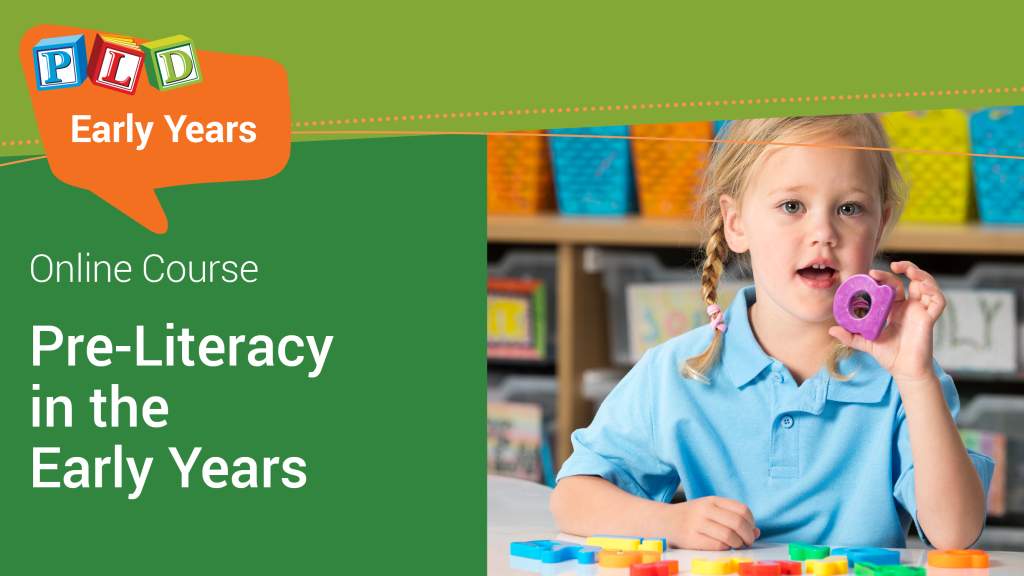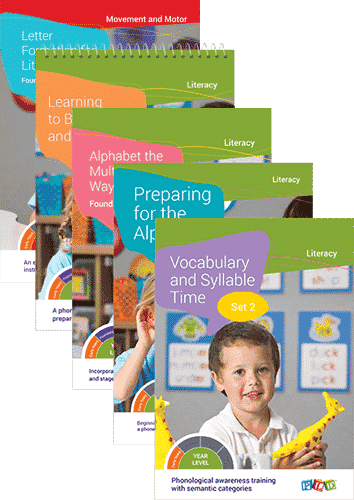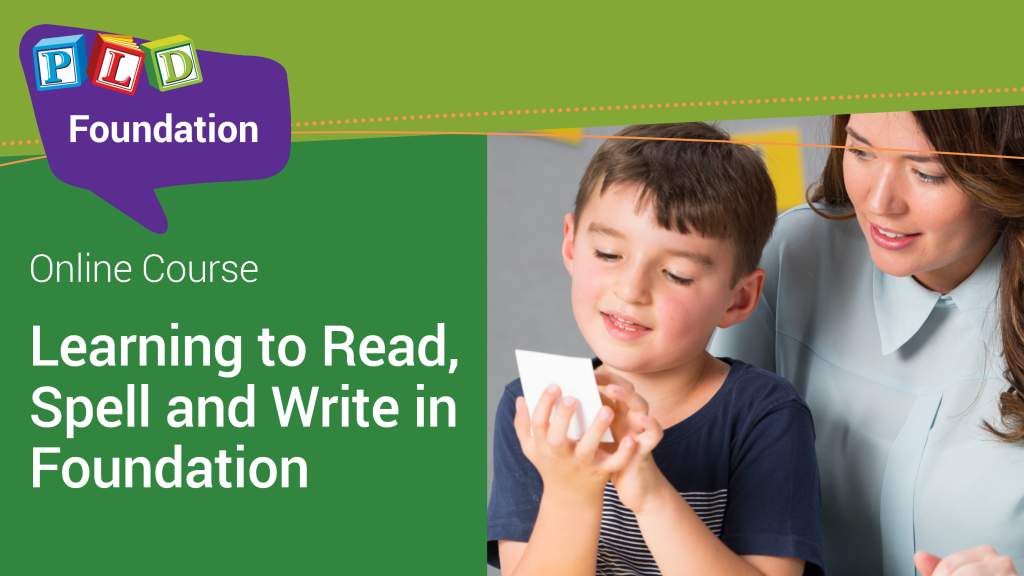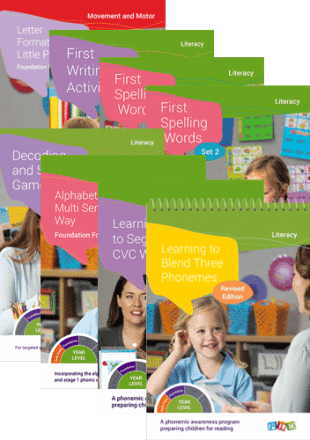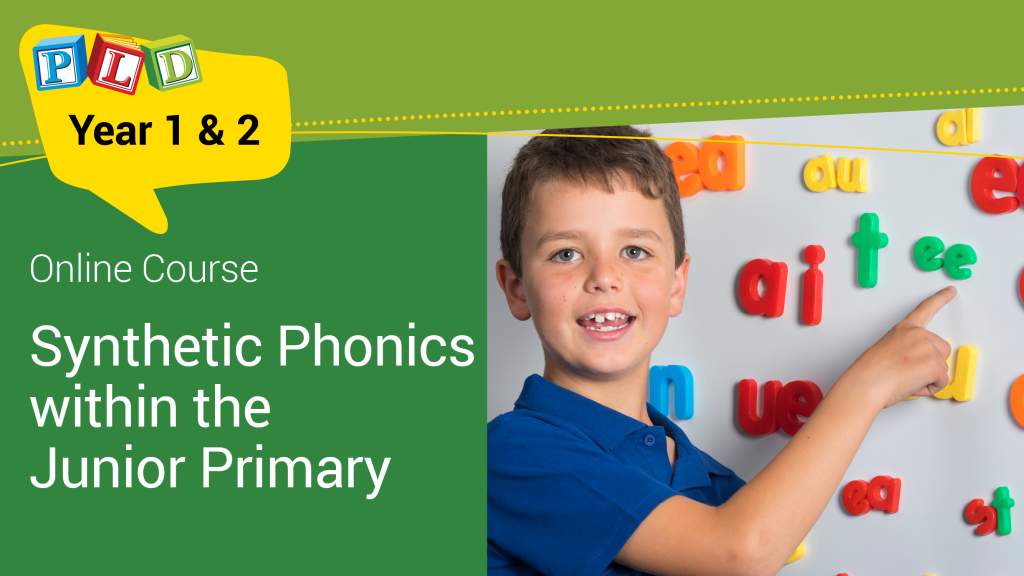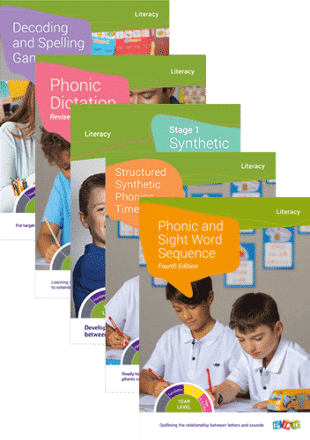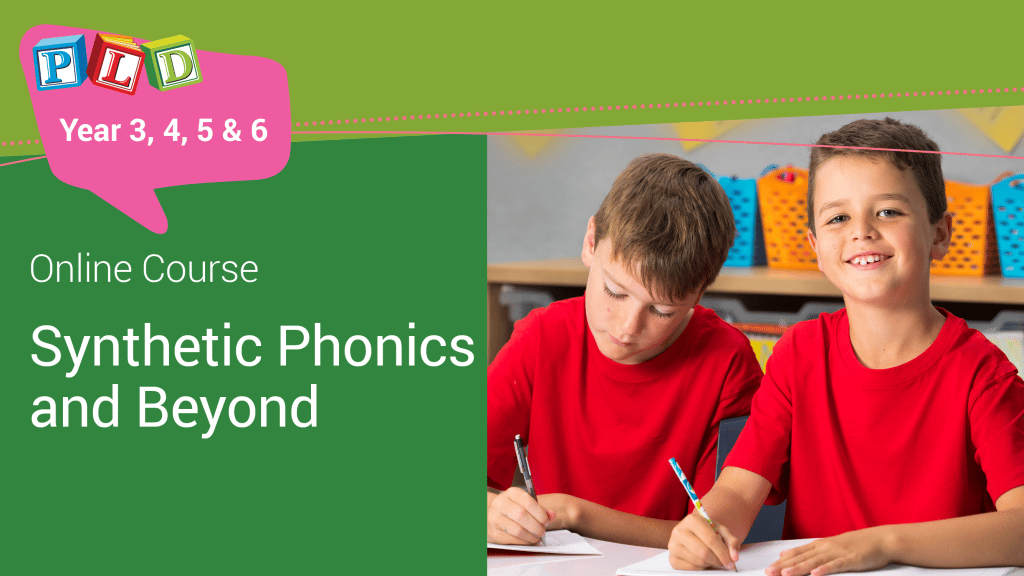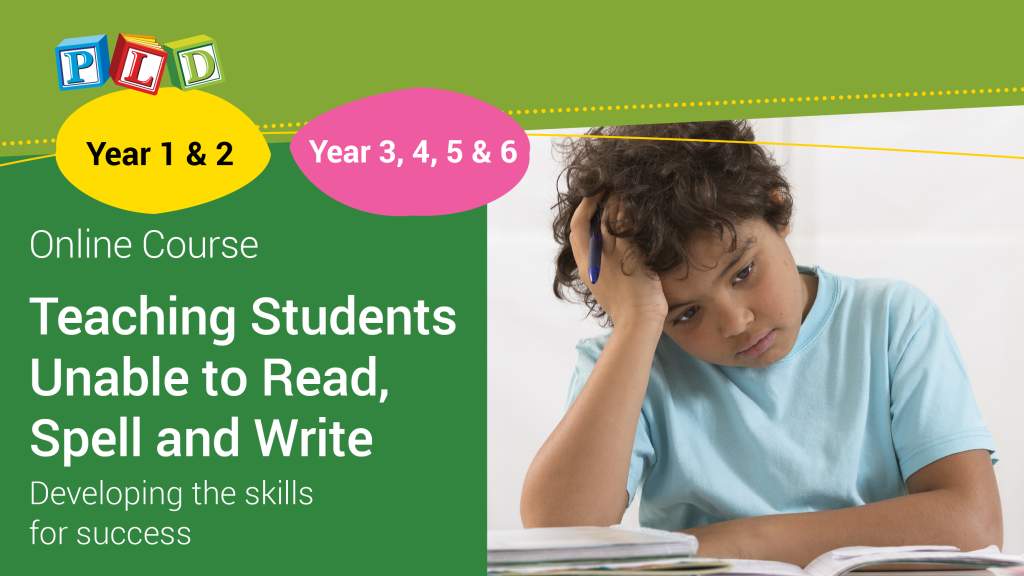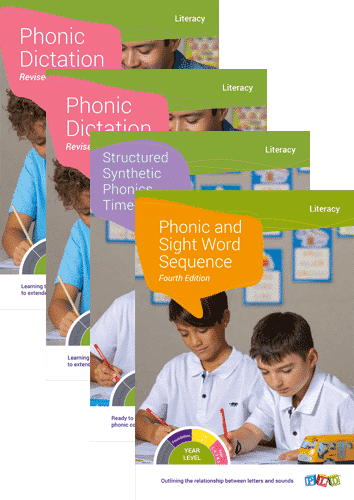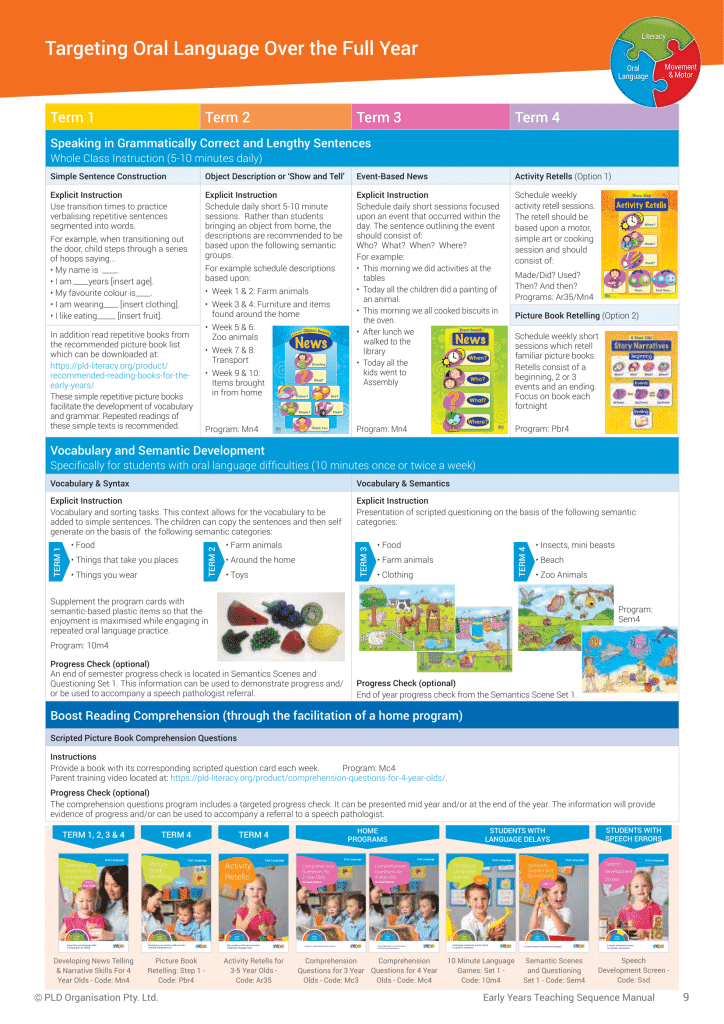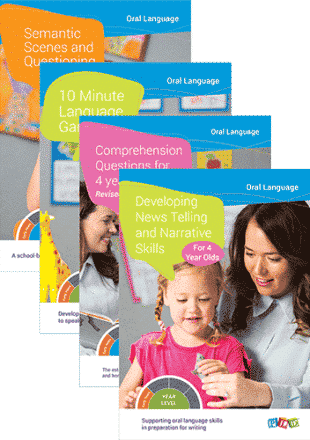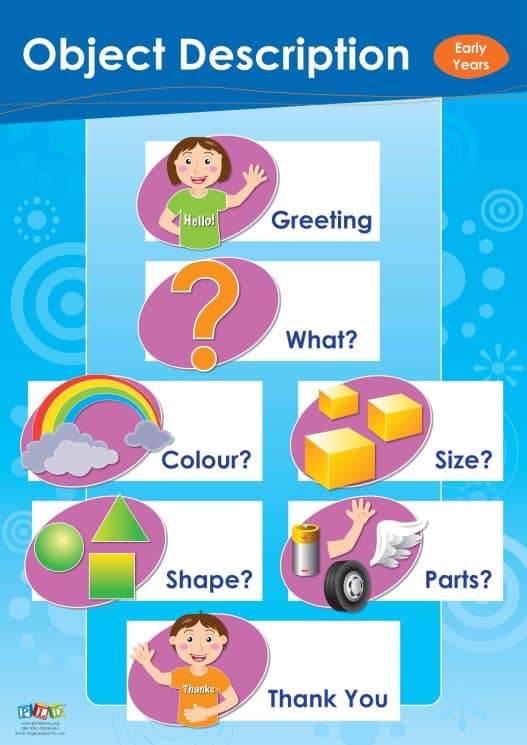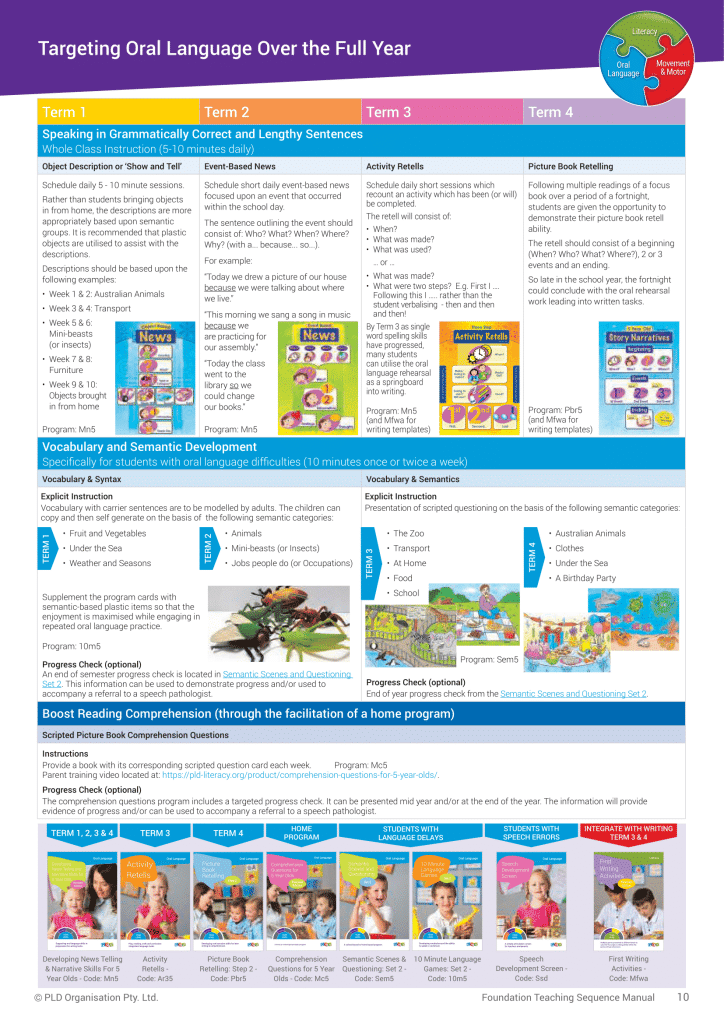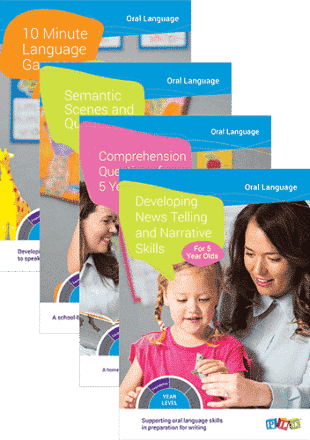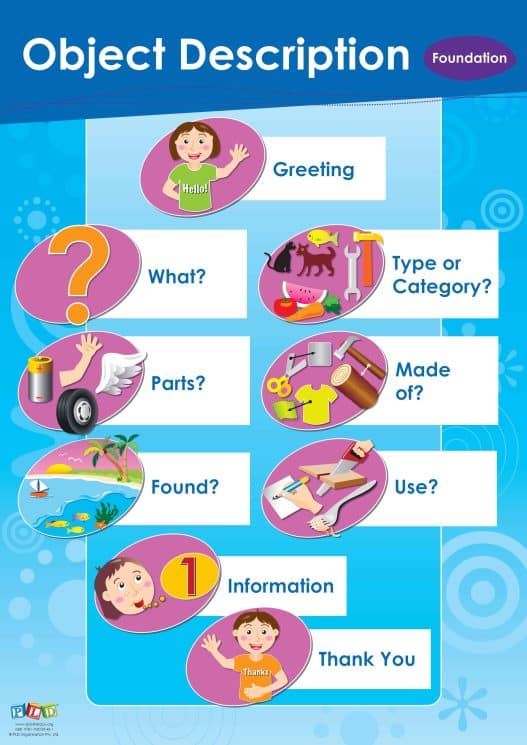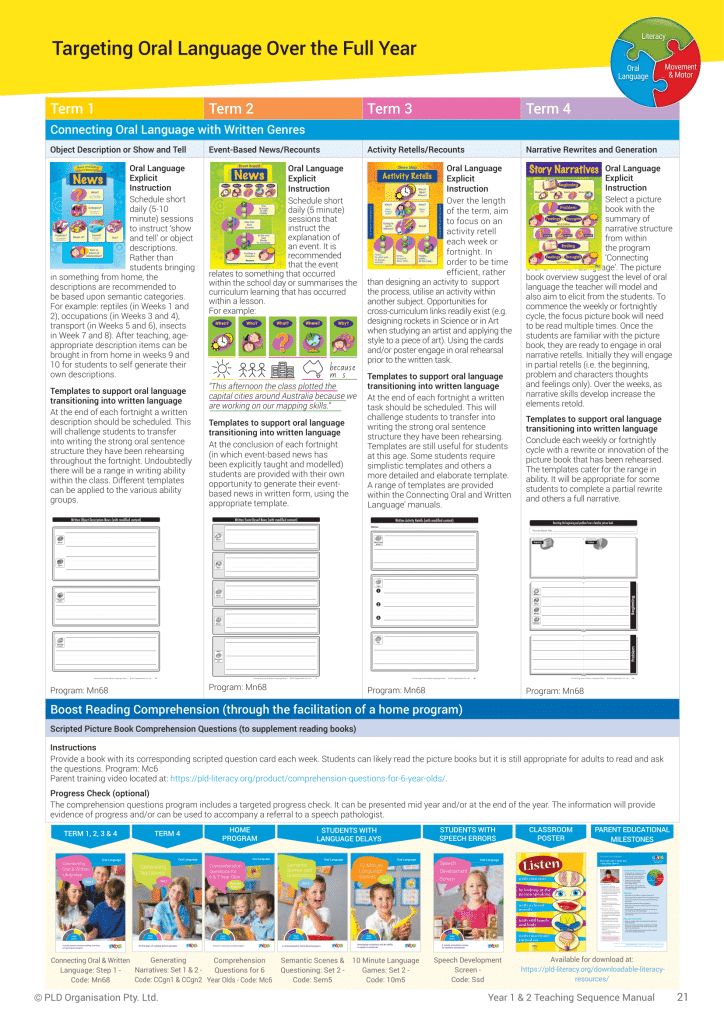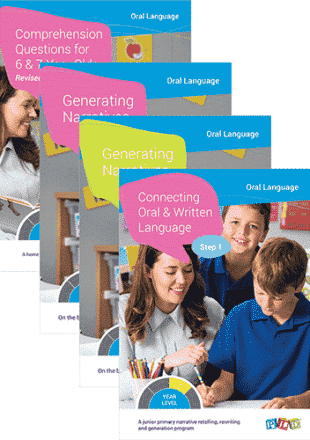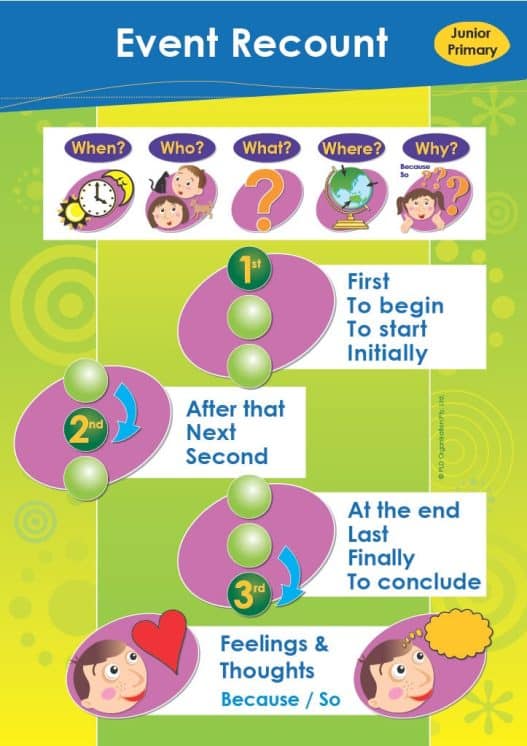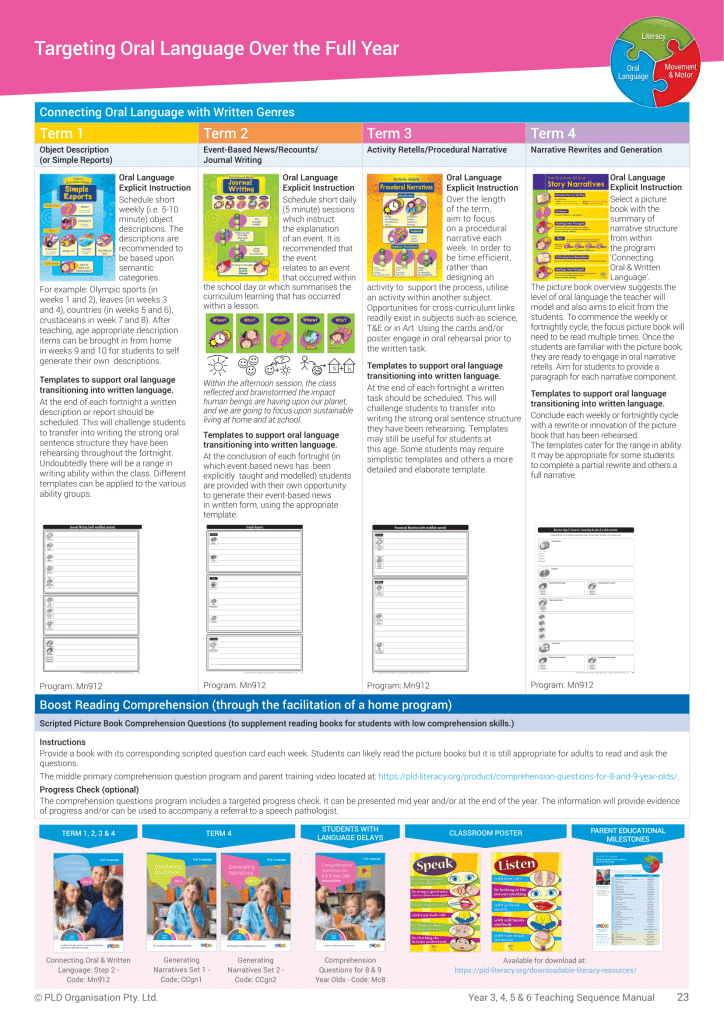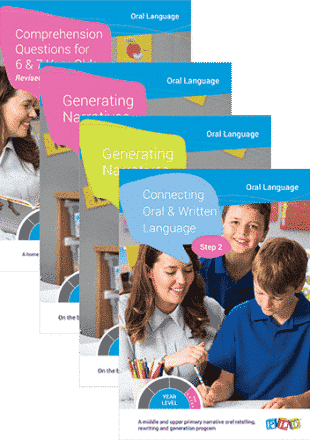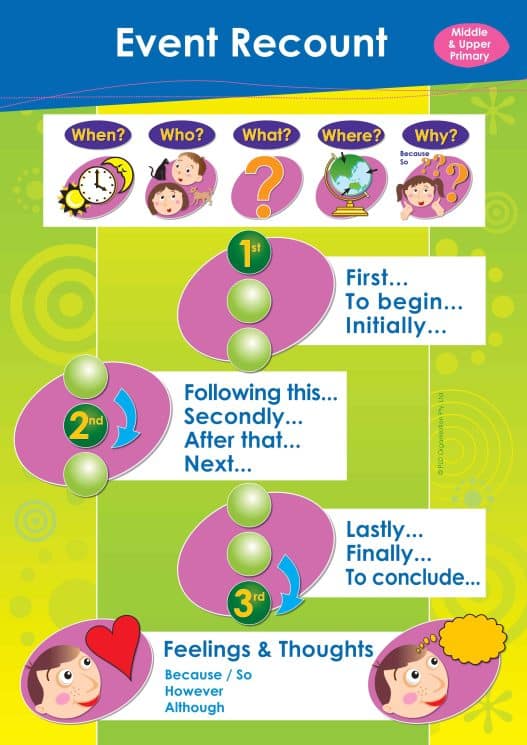Tutors Presenting PLD Programs
Supporting Students with Primary School Literacy Levels
PLD has written many programs which can assist in developing strong oral language skills and literacy skills. Speech pathologists have been central to the design of both the literacy and language range. The programs can be presented for early intervention (and prevention of literacy difficulties) or the treatment of literacy delays.
Use the tabs below to skip ahead to:
Normally, the PLD classroom implementation process requires teachers to screen the students once a term or if in the junior primary twice a term. However, as tutors typically work with students individually more regular testing is recommended.
The PLD tracking sheets have been adapted to record the skill development as a result of the tutoring session.
The following student is in Year 1 and is often screened monthly. The regular testing should not only demonstrate the gains being made but the information gained should also inform the fine-tuning of the PLD program presentation.
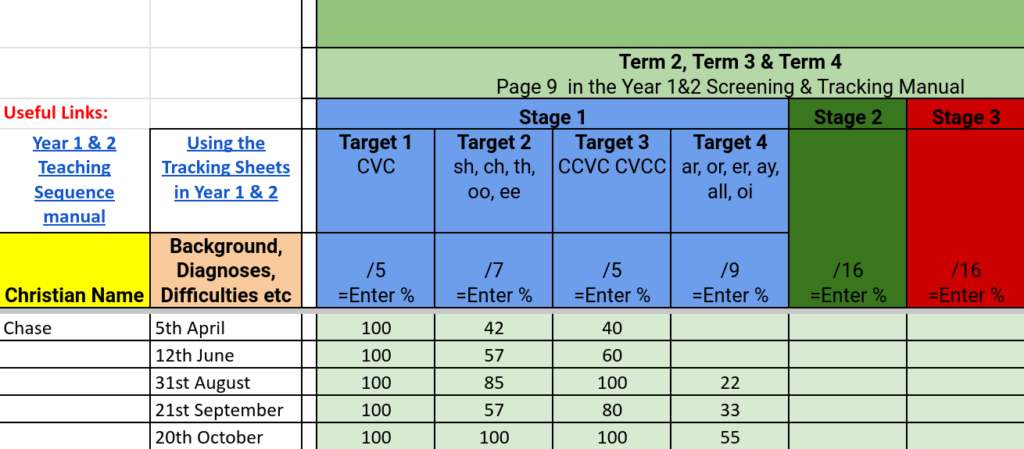
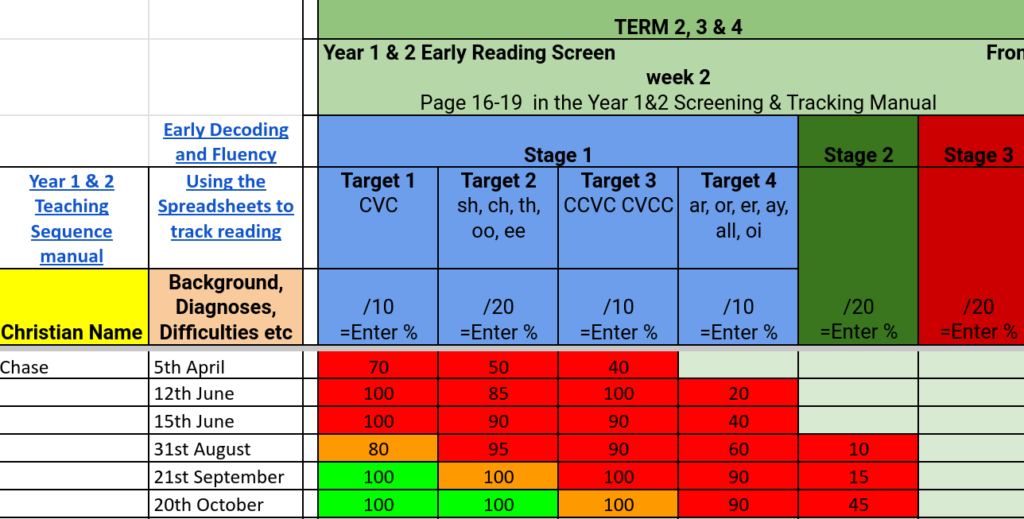
Tutoring Students Within the Early Years
Are advised to focus on an Early Years implementation of PLD. Click here for the Early Years manuals.
- If commencing implementation within semester 1, classes are advised to commence teaching the skills outlined commencing with the Term 1 Early Years implementation.
- If commencing implementation in semester 2, an Early Years placement test can be presented to determine the starting points for the different targeted teaching groups. Read more on this here.
Tutoring Students Within Foundation
Are advised to focus on a Foundation level implementation of PLD. Click here for the Foundation manuals.
- If commencing implementation within semester 1, classes are advised to commence teaching the skills outlined commencing with the Term 1 Foundation implementation.
- If commencing implementation in semester 2, a Foundation placement test can be presented to determine the starting points for the different targeted teaching groups. Read more on this here.
Tutoring Students Within Year 1 & 2
Are advised to focus on Year 1 & 2 implementation of PLD. Click here for the Year 1 & 2 manuals.
- The spelling placement tests (which cover PLD’s stages 1-3) are located on pages 9-12 of the Screening & Tracking Manual.
- The reading placement test (which covers PLD’s stages 1-3) will support teachers to identify students who require decodable reading material. These assessments can be found on pages 16-20 of the Screening & Tracking Manual.
- For the students operating at a pre-literacy (or pre-CVC level) present the subtests in the red box on pages 27-29.
Tutoring Students Within Years 3, 4, 5 & 6
Are advised to utilise the placement tests outlined in the Year 3, 4, 5 and 6 manuals.
- The spelling placement tests (which cover PLD’s stages 1-6) are located on pages 9-16.
- The reading placement tests will identify the students who still require decodable reading material. These can be located on pages 23-26.
- For the students operating at a pre-literacy (or pre-CVC) level, present the subtests in the red box on pages 26-28.
The year level of the students being tutored and their operational levels will determine which of the following training and program options are relevant.
Early Years
Training
- Early Years classes are advised to view the course ‘Pre-Literacy in the Early Years’.
Programs
- Click here for the Essential Early Years Literacy Starter Pack.
Foundation
Training
- Foundation classes are advised to view the course ‘Learning to Read, Spell and Write in Foundation’.
Programs
- Click here for the Essential Foundation Literacy Starter Pack.
Year 1 & 2
Training
- The relevant course is Synthetic Phonics in the Junior Primary’. However, it is also anticipated that there may also be a proportion of students who are at a pre-literacy level. For those working with these students, the relevant course is ‘Teaching Students Who Are Unable to Read, Spell & Write’.
Programs
- Click here for the Essential Year 1 Literacy Starter Pack or the Intensive Pre-Literacy Skills Teaching Pack.
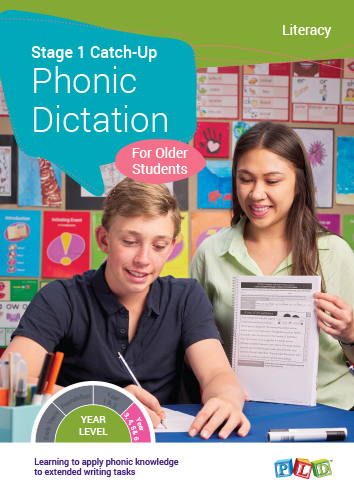
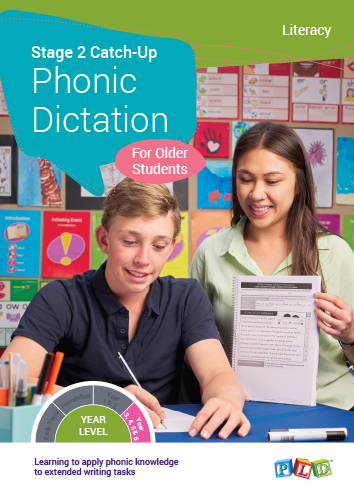
Year 3, 4, 5 & 6
Training:
- The relevant course is ‘Synthetic Phonics and Beyond’ which outlines PLD’s Stages 1-6. It may be beneficial for teachers to access ‘Synthetic Phonics in the Junior Primary’ if there are a significant number of students working below age-appropriate levels. Additionally, the ‘Teaching Students Who Are Unable to Read. Spell & Write’ course will be helpful for students who are at a pre-literacy level.
Programs:
- Click here for the Essential Year 3 & 4 Literacy Starter Pack or the Essential Year 5 & 6 Literacy Starter Pack.
- For students who are operating at a pre-literacy level. Click here for the Intensive Pre-Literacy Teaching Pack.
- For older students operating at a junior primary level PLD’s Stage 1 & 2 Phonic Dictation Catch-Up programs are recommended.
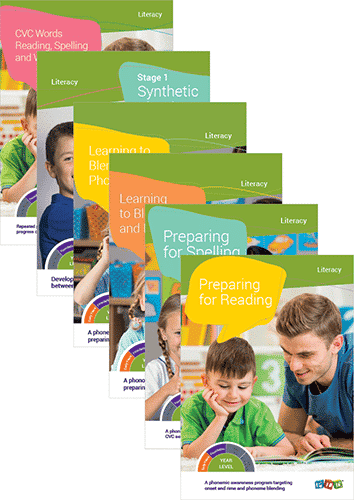
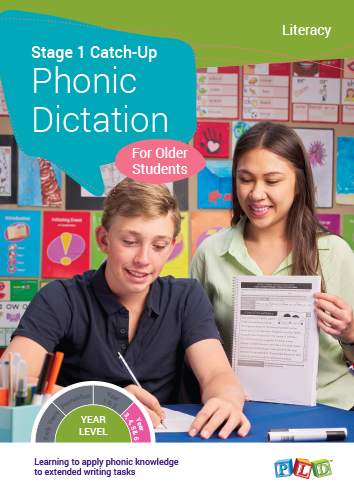
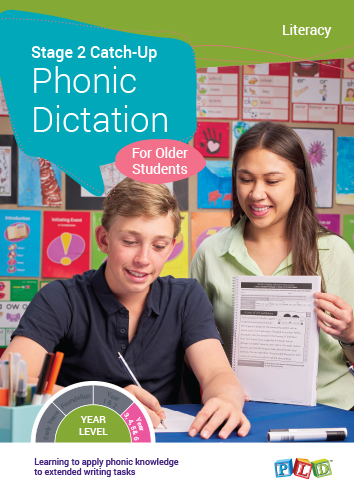
It is common for many students with literacy delays, to experience an associated oral language delay. Why? Ora language skills typically relate and are linked to written language skills. For this reason, in addition to PLD’s evidence-based structured synthetic phonics programs, PLD also recommends a range of oral language programs written by speech pathologists.
Early Years Oral Language
- Early Years Oral Language Plan on page 9 in the Early Years Teaching Sequence Manual.
- Early Years Oral Language Starter Pack – view here.
- Download the Early Years Posters here.
Foundation Oral Language
- Foundation Oral Language Plan on page 10 in the Foundation Teaching Sequence Manual.
- Foundation Oral Language Starter Pack – view here.
- Download the Foundation Posters here.
Year 1 & 2 Oral Language
- Year 1 & 2 Oral Language Plan on page 21 in the Year 1 & 2 Teaching Sequence Manual.
- Year 1 & 2 Oral Language Starter Pack – view here.
- Download the Year 1 & 2 Posters here.
Years 3, 4, 5 & 6 Oral Language
- Year 3, 4, 5 & 6 Oral Language Plan on page 23 in the Year 3, 4, 5 & 6 Teaching Sequence Manual.
- Year 3, 4, 5 & 6 Oral Language Starter Pack – view here.
- Download the Year 3, 4, 5 & 6 Posters here.

